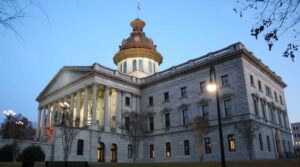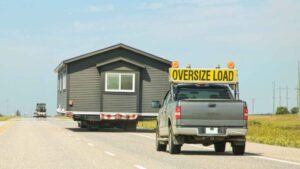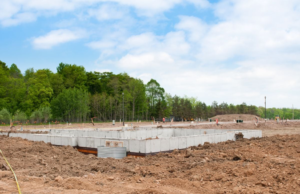South Carolina has over 5 million people, with about 100,000 living in mobile homes. Their popularity can be explained as they are inexpensive, easy to transport and offer residents a sense of freedom.
Yet, several rules and regulations regulate mobile homes in South Carolina, and it is critical for anyone who owns or is considering purchasing a mobile home to be informed of these laws to prevent potential legal issues.
Government Authority
The South Carolina Manufactured Housing Board is in charge of regulating mobile homes in the state. This body is in charge of developing and implementing rules and regulations to guarantee the safety and upkeep of mobile homes. The board collaborates with local government authorities to guarantee that mobile homes are developed and maintained legally.

It is crucial to note that mobile homes are considered personal property rather than real estate, so they are subject to different restrictions than typical residences.
Mobile Home Park Act Law
The Mobile Home Park Act is an essential rule controlling mobile homes. This legislation establishes a framework for the state’s regulation of mobile home parks. It explains the conditions mobile home parks must follow to operate lawfully, including requiring a Manufactured Housing Board license.
Mobile home parks must fulfill particular criteria for water, sewage, and electrical systems and have a designated manager in charge of park management.
It also includes laws about evictions. Mobile homeowners must follow specific standards when evicting renters from their property. They must provide the tenant with written notice, outlining the basis for the eviction and providing the tenant a fixed time to depart the premises. If the tenant does not vacate the premises within that time range, the owner must file a complaint with the court to get an eviction order.
Manufactured Home Installation Standards
The proper requirements for installing a mobile home on a permanent foundation are outlined in these guidelines. A licensed contractor trained to meet installation requirements must install mobile homes.
Site preparation, leveling, anchoring, and electrical and plumbing connections are all part of the installation procedure. The purpose of these installation guidelines is to guarantee that the inhabitants of mobile homes are safe and secure.
Mobile Home Titles
Mobile homes are considered as personal property rather than real estate in South Carolina. As a result, they are not subject to the same rules and regulations as traditional houses. Mobile homes, like automobiles and boats, are instead titled. The Department of Motor Vehicles (DMV) issues the title, which must be transferred from the seller to the buyer at the time of sale.
When acquiring a mobile home, be sure the seller has a legal title to the property. The title should be clear of any debts or other burdens that might hinder the buyer from possessing the property. Moreover, the seller must sign the title over to the buyer in the presence of a notary public and the buyer must pay any necessary fees for the title to be transferred.
Sales and Purchase
In South Carolina, there are also rules governing the selling and acquisition of mobile homes. When selling a mobile home, the seller must provide proof of title and declare any known flaws or difficulties with the house. Buyers should also know that older mobile homes may be subject to additional rules and inspections.
Additional Guidelines
Finally, it is vital to know that local governments may have their own mobile home restrictions. Zoning restrictions, construction laws and other standards for installing and maintaining mobile homes may be included in these regulations. Individuals must examine the regulations in their respective locations to ensure that they are in accordance with all applicable laws.
In A Nutshell
South Carolina has a thorough system of rules and regulations to ensure that mobile homes in the state are safe and meet state requirements. These rules include everything from mobile home design and building to mobile home park administration. As a result, South Carolina is a state that is dedicated to providing its inhabitants with safe and affordable housing alternatives.
Whether you own or rent a mobile home in South Carolina, you must know these rules and regulations to ensure you comply.





[…] this post, I’ll talk about the foundation requirements of mobile homes in South […]
[…] is a major factor for many who choose this lifestyle. However, it is important to understand the regulations and permit requirements for moving a mobile home in South Carolina. Knowing the laws surrounding mobile home […]
[…] Request multiple quotes and compare them before making a decision. A reputable contractor will also help you navigate the permit process and ensure compliance with local regulations. […]